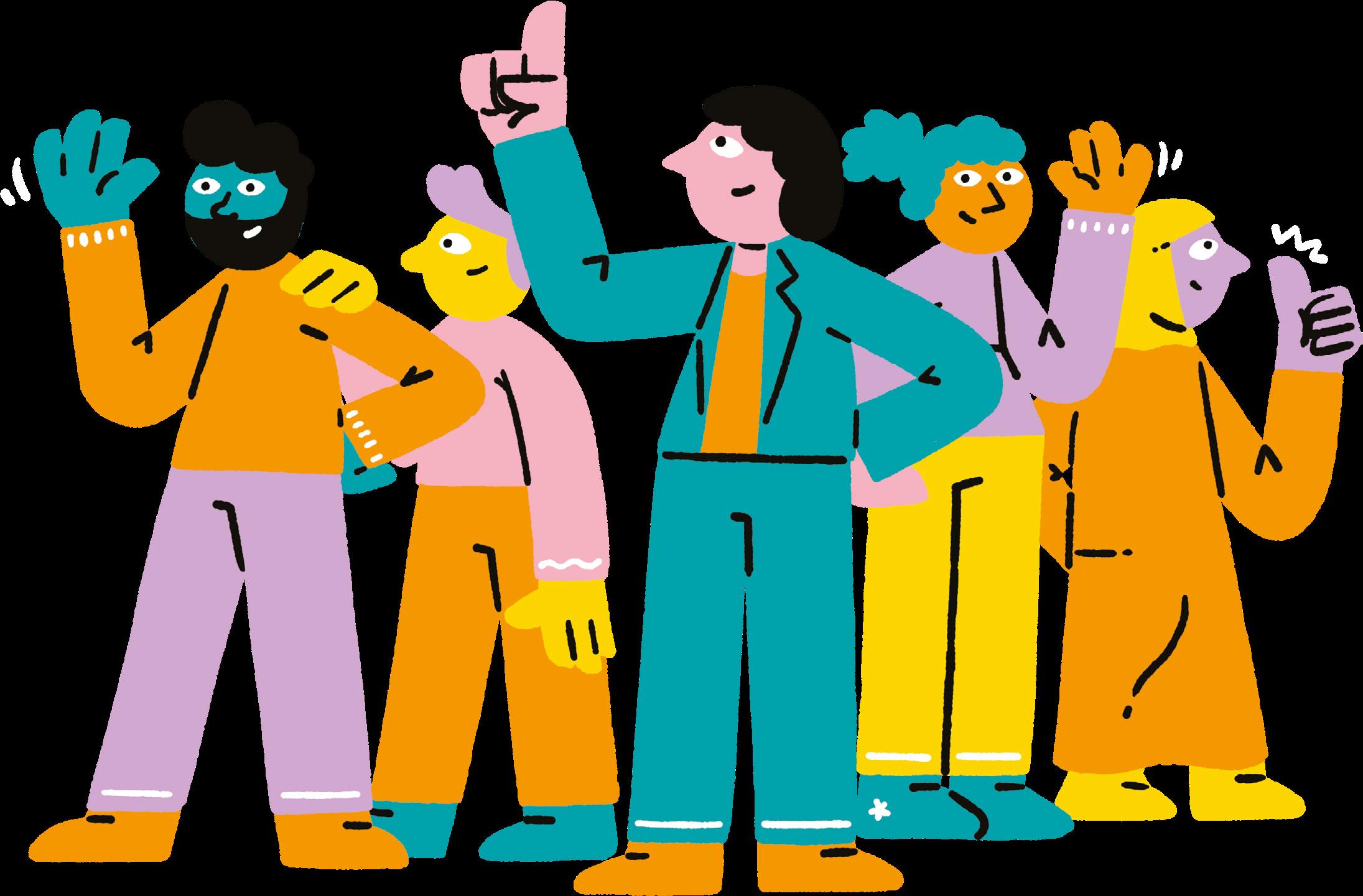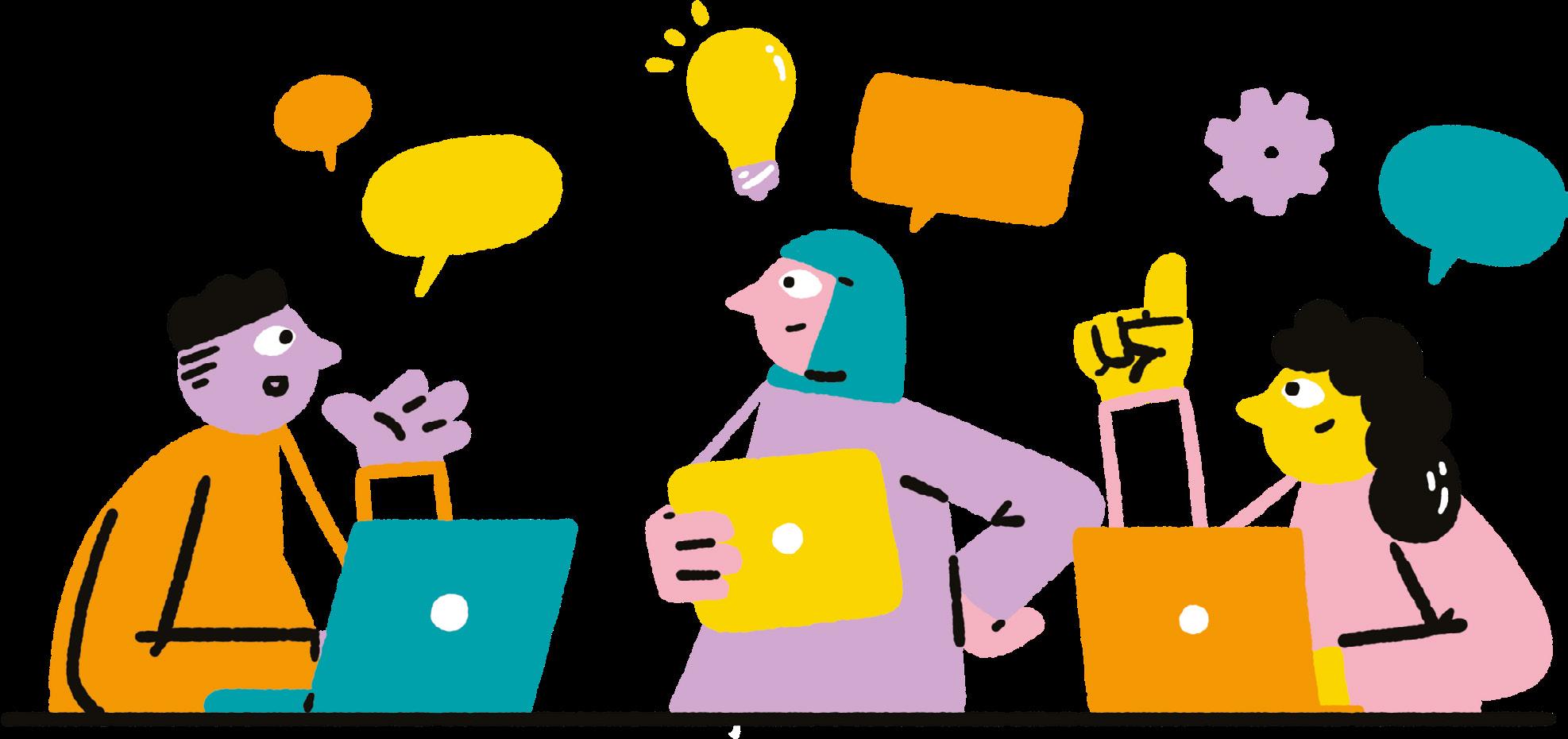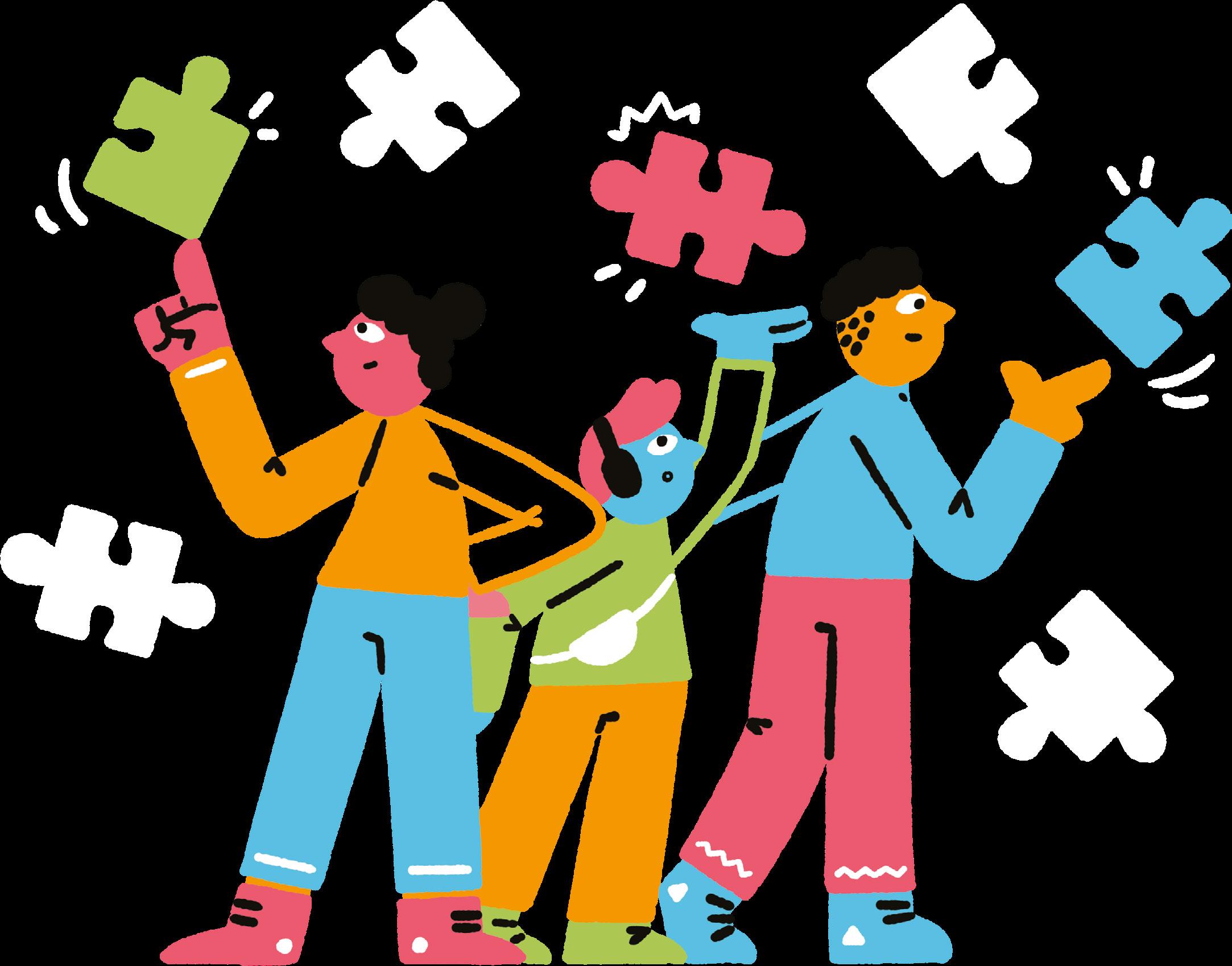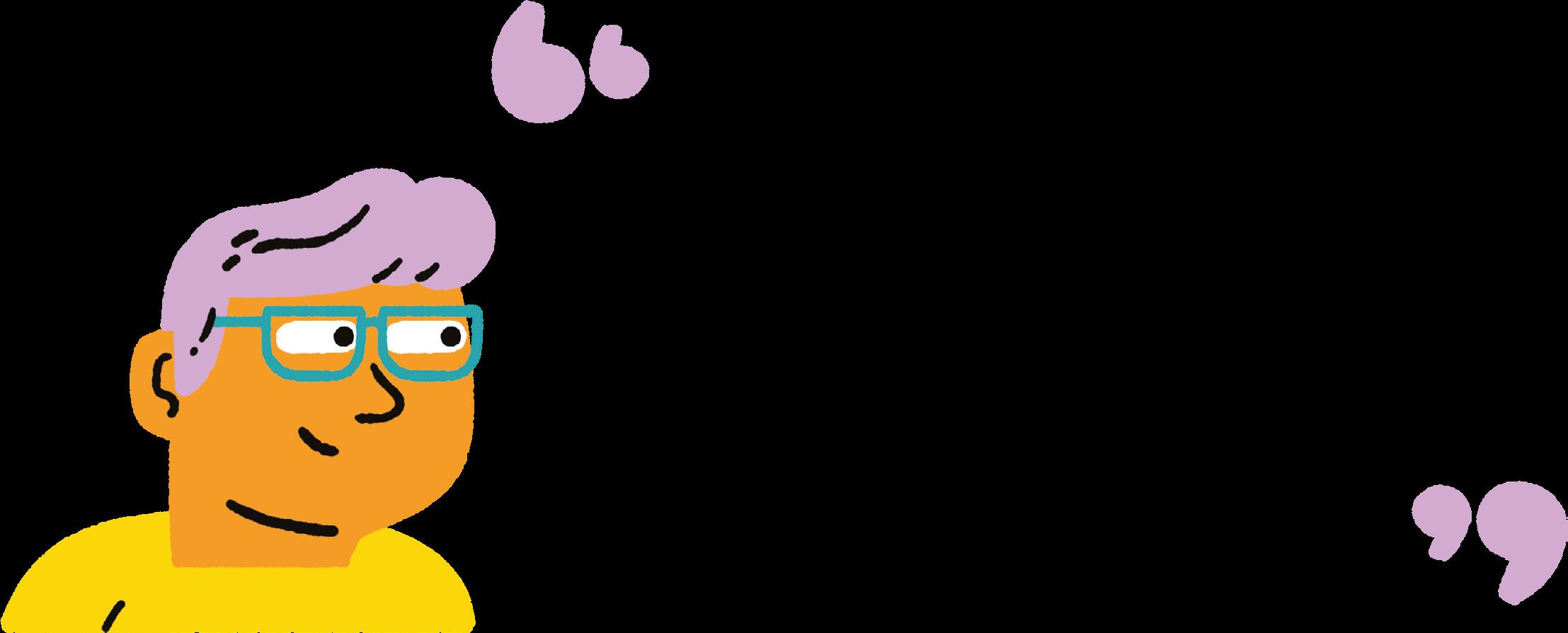




Standing up for your rights can sometimes be difficult. Take courage from the fact that there is a whole Convention, that has been agreed to by all the countries in the world except one, that says that you do have rights. It also says that the country you are living in has a responsibility to make sure that your rights are promoted and protected.
Professor Ann Skelton, Chairof the United Nations Committee on the Rights of the Child


This book is dedicated to you – children and young people. We all have rights. In order to claim your rights, you need to understand what rights you have. You have the right to learn about your rights – and that’s what this book is all about. Pause, Play, Fast Forward: The Journey of Children in Wales has been written by young people for young people. Therefore, I would like to introduce myself. Hi, I’m Arthur, I’m 16 and have been volunteering with Young Wales for about two years. I remember during my first residential with Young Wales where we were asked what inspired us. My answer was young people - our passion, drive, and creativity; the strength and courage that we have in fighting for what we believe in. You don’t have to be change-makers to be inspirational. Simple actions can remind us of the power that we all have. The power to access our rights and respect each other, in a world that is sometimes not easy to navigate. I have had the honour of being the author of this book, capturing the story of children’s rights, learning from young people and professionals along the way. This has certainly been one of the most incredible experiences of my life so far. I have developed new skills and worked with people who have challenged and supported me to be the best version of myself.
I am extremely grateful to Children in Wales for giving me the opportunity to exercise my right to be heard in this way. There are so many people who have been involved in the process who I would like to take a moment to thank. Firstly, all of the Young Wales volunteers who have contributed to the book. I would also like to thank Professor Sally Holland, Deputy Minister Julie Morgan, Catriona Williams OBE, Owen Evans, Rocio Cifuentes MBE, Dragan Nastic, Mike Greenaway, Keith Towler, Professor Jo Sibert OBE, and Dr Rhian Croke for participating in interviews to help us learn more about the history of children’s rights and Children in Wales. I would also like to give a shout out to our fantastic illustrator and designers for bringing our vision to life. Lastly, on behalf of the Young Wales volunteers, I would like to thank the team in Children in Wales for supporting us to bring this ambition to life.
I hope you enjoy reading through the past, present, and future of children’s rights in Wales. I hope you feel empowered to claim what you are entitled to. I hope you are inspired to take action and make your voices heard. Article 12 all the way!
Arthur Templeman-Lilley
Children in Wales aims to make children’s rights a reality in Wales. Bringing organisations together as a unified voice calling for change. Collecting views from health, education, charities, and social services; all coming together with the shared goal of making Wales a place where all children can access their rights. With a focus on making sure that the most vulnerable and discriminated against children and young people are protected, empowered and given the tools needed to be the best they can be.
Building a Wales where all children and young people have all their rights fulfilled


Children in Wales works to achieve these goals by:
• Campaigning for the United Nations Convention on the Rights of the Child (UNCRC) to be fully embedded across Wales
• Challenging inequalities and promoting fairness for all children and young people across Wales
• Bringing together and raising a collective voice calling for changes to policy and law
• Promoting and supporting the participation of children and young people within decision-making
• Providing a platform to share innovative and creative practice across Wales
• Advocating for the priority areas for children and young people and organisations they work with
• Providing learning and development opportunities for those who work with children and young people
• Completing research and sharing the findings with other organisations


Children in Wales was started in 1993 by Catriona Williams OBE, a passionate advocate for children’s rights who understood the need for a shared voice amongst organisations in Wales.

The UNCRC was ratified by the UK Government in 1991 just two years before Children in Wales started. Ratification means that UK Government agreed to consider children’s rights when making decisions, providing an opportunity for organisations to use this promise to improve the lives of children and young people.
Children in Wales represents organisations across the country to make sure that all children’s rights are achieved.
Children’s rights work together and if one right is not met, the impact will be felt across all aspects of a child’s life.
Children in Wales brings organisations together as a single voice; campaigning to achieve real benefits for children now and in the future.





When Catriona started Children in Wales all she had was an empty room, an opportunity to create something long-lasting, with the potential to drive progress and empower young people.



Devolution plays a big role when thinking about children’s rights, and how this links to decision-making and politics What does this actually mean?
The United Kingdom contains four nations: England, Northern Ireland, Scotland, and Wales. Before the 1990s, the UK Government made most of the decisions for all the nations. Each UK nation has unique strengths and challenges. As part of devolution, the nations have been given powers to make decisions for their people. Wales can now make decisions in areas like education, health, social care, transport, economy, sports and the arts.
1998
UK Parliament passes an act that gives devolved powers to Wales, following a referendum the year before.
2018
The first two Welsh Government taxes are introduced, providing Welsh Government with another source of income.
The National Assembly for Wales meets for the first time.
2019
Members of The Welsh Youth Parliament meet for the first time.
2007
Welsh Government and the National Assembly are given different roles when making and implementing laws.
2020
The National Assembly becomes an official parliament, known as the Senedd.


Devolution helped to progress the children’s rights movement in Wales. Members of the National Assembly felt passionately about the issues young people cared about, and for the first time, had the ability to make a real difference. With a new National Assembly budget dedicated to serving the Welsh population, many organisations began campaigning for changes to legislation, new programmes, and improvements to services.


Children in Wales were at the forefront of this ‘golden era’, bringing the ideas of organisations together to ensure that devolution could have a meaningful effect on the lives of children and young people.
The opportunity and sense of freedom in decision-making that came with devolution ignited a fire amongst children’s organisations and politicians, where the UNCRC could be pushed to the top of the agenda.


We had this golden era because of devolution and the new people in politics at the time had been involved in the campaigning world themselves
Catriona Williams


I will never forget the big conference we put on for the European Year of Disabled People, a participation event with children from all around the world funded by Welsh Government Around 120 children attended with Children in Wales staff being stationed at UK airports as the children were arriving It was very emotional because there were many disabled children who hadn’t ever had their voices heard at all
We took young people to the first UK session on the UNCRC in Geneva The young people talked to the UN Committee on the Rights of the Child directly This opportunity gave Wales an international platform supported by Welsh Government Following this, the United Nations Committee began to involve more young people
 Catriona Williams OBE
Catriona Williams OBE



Children in Wales was also one of the Founder Members of Eurochild (with Catriona being the founder president) which has grown to 200 member organisations in 41 countries and Welsh young people have been represented on Eurochild’s Children’s Council.
The first Children in Wales campaign that influenced policy was about the health rights of children and young people. Professor Jo Sibert, former Chair of the Board of Trustees at Children in Wales steered this work, finding ways that the UNCRC and health connect in Wales.

Whenever there was an opportunity, children’s rights campaigners, including Children in Wales, would always mention the need for a Children’s Commissioner. Welsh Government created the post of Children’s Commissioner for Wales in 2001.

READ MORE ABOUT THE CHILDREN’S COMMISSIONER ON PAGE 23.
The Rights of Children and Young Persons Measure is the most important piece of legislation for the children’s rights movement in Wales to date. Children in Wales and other organisations campaigned for Welsh Government to show their commitment to children’s rights. The measure says that Welsh Government must always consider children’s rights when making decisions.
This was a major achievement for children’s rights in Wales. Children in Wales continue to campaign for each right in the UNCRC to become a part of law and raise awareness of the convention as stated in Article 42 of the UNCRC.


Article 42 says that I have the right to know about all my rights


Children in Wales continues to be involved in Welsh Government policy. A more recent example of this is the Children (Abolition of Defence of Reasonable Punishment) (Wales) Act 2020 or the “Smacking Ban” as it is often called. In 2000, Children in Wales started to host the “Children are Unbeatable Cymru” campaign. This campaign called for the legislation to give children the same protection from physical harm as adults. Professor Sally Holland, the former Children’s Commissioner, was extremely passionate about this issue during her term.
In 2021, the Curriculum and Assessment (Wales) Act was passed, which meant that human rights and children’s rights had to be taught in all schools in Wales, to help children know about and understand what rights they are entitled to.
30 years on, Children in Wales remains grounded by the values of the UNCRC, whilst keeping in mind the lessons learnt and thinking of creative approaches for the future.
Young Wales is the participation branch of Children in Wales. They provide meaningful opportunities for children and young people to access their right to be heard on matters affecting them (UNCRC Article 12). Through Young Wales, the volunteers have the opportunity to meet with ministers, take part in consultations, co-produce documents, and advocate for their peers.

We asked the Young Wales volunteers to tell us about why they volunteer and the best parts of their experiences so far. Here’s what they had to say:

Volunteering with Young Wales has given me so many wonderful experiences such as meeting ministers and allowing me to get involved in so many different boards and projects.


Gaining new skills, experiences and opportunities to express my opinion.


I get to make lifelong friends, be around like-minded passionate young people who want to make a difference and the opportunity to get my voice heard by Welsh Government and see our impact make a difference.



I volunteer for Young Wales as I have a passion for raising the voices of young people and ensuring that their voice is heard.

So that kids like me can have a say on how schools manage disabilities like Dyslexia, and don’t have to leave school due to anxiety.



To meet new people that are a similar age and to have new experiences.



We are listened to through having different focus groups that concentrate on different important issues for young people in Wales.


My views are carefully taken into consideration and then used to try and re-direct the Welsh Government for young people in Wales.


Article12oftheUNCRC (therighttohaveyour viewsheard)ispractised inYoungWalesand alwaysmyopinionislistenedto

My favourite moment(s) was visiting the United Nations (twice). I know I was very lucky to be a part of such an experience.
My favourite moment has got to be when I attended the Four Nations Mental Health and Emotional Wellbeing Conference in 2019. Me and five other young people spoke on stage about our experiences with mental health, and we met the ministers for education and health services and the children’s commissioners for Wales and Ireland.
The whole experience allowed me to learn more about our nation’s health services and what can be improved.




My favourite moment was when we went to the Senedd, and I got to meet with Welsh Government and it was a great experience.

The volunteer residentials because I made some new friends!

1923
Save the Children Founder Eglantyne Jebb drafts the Declaration on the Rights of the Child, outlining what children need to grow up to be the best they can be.

1948
The Universal Declaration of Human Rights includes a specific right focussed on the care, assistance and protection of mothers and children.

1978

The United Nations General Assembly adopts the Declaration on the Rights of the Child recognising children’s right to play, healthcare, a supportive environment, education, and many more.
Representatives from different countries and organisations come together to consider an early draft of a convention focussing on children’s rights.
1989

The Convention on the Rights of the Child is adopted by the United Nations, giving children the entitlement to have everything they need to grow up in a safe, stimulating, and empowering environment.


The Convention is a universal standard for the whole international community
Dragan Nastic, UNICEF UK

1995
The UK submits their first report to the UN Committee on the Rights of the Child, where they review how well the UK are doing to implement the UNCRC. The committee then provides recommendations for improvements; these are known as concluding observations.


The UN Committee came out with a host of recommendations for all of the agencies and the duty bearers that are responsible for children’s rights
2015
Somalia and South Sudan agree to work to uphold the Convention, making the UNCRC the most widely accepted human rights document in history with 196 countries making the commitment.



2023 A team from Young Wales provide evidence during the 2023 UK state party review of the UNCRC, with their views and opinions helping to shape the recommendations for the UN Committee. Beyond
Hopefully, the Welsh Government and UK Government will work to implement the recommendations from the committee, particularly focusing on the Young Wales priorities of ending child poverty and fully incorporating the UNCRC into Welsh law.

The Children’s Commissioner is an advocate for children and young people, listening to your voices, speaking up on your behalf, and holding Welsh Government to account. They act as the main champion for all children and young people in Wales. In 2001, Wales became the first nation in the UK to have a Children’s Commissioner.
There have been four Children’s Commissioners in Wales so far and they are supported by a team of experts in policy, participation, and casework. The Commissioner often has meetings with ministers and speaks at events sharing their thoughts on current issues and providing advice on children’s rights. The Children’s Commissioner has duties set out in law, but every Commissioner has their own style, priorities, and experiences. A Commissioner is appointed for a seven-year term.
The Commissioner makes sure that laws are being checked and that children’s rights are considered. They also point out any gaps in laws and advocate for progress that improves the lives and experiences of children and young people.


Children’s Commissioner for Wales 2001 - 2008
As the very first Children’s Commissioner for Wales, Peter was responsible for setting up the office, to make sure it could advocate for children and include their voices. In 2005, he published a report called “Telling Concerns”. This gave recommendations on what people who work with children should do if they are worried about a child.

It continues to surprise me that we expect 18-year-olds to be fully engaged in our representative processes when we have not given them any real experience of decision making in the things that affect them most Annual Report, 2002.



If you talked to adults about how children saw the world, you would design different solutions to the ones that you were currently designing

During Keith’s term as Children’s Commissioner for Wales he spoke openly about the negative stereotypes associated with children. He also spoke about the importance of empowering young people. This included working closely with a group of young people during the UNCRC reporting process in 2008.
During his term, the office published the ‘Missing Voices’ report and other reports that focused on the rights of children in the care system and care leavers. They made recommendations for what should change to ensure these children could access their rights.

Whatever ambition you have Whatever you want to do, anything at all, you have the absolute right to fulfil that potential, so if you feel that something is holding you back then use children’s rights to ask questions of people who make decisions





YW Volunteers: Kai, Arthur, and Mico with Prof Sally Holland
We can overcome inequality and injustice with a human rights-based approach

As Children’s Commissioner for Wales, Sally introduced the No Wrong Door Approach to mental health. Young people told her that they were constantly being passed between services, and that they had gone to the wrong person or service. After listening to how young people felt this system should operate, Sally started working with professionals from health and education to develop a new approach, which means that wherever young people choose to go, they should receive the right support.


No matter what, you have rights We as adults have a duty to make sure you get them Keep respecting other people’s rights, and let’s work together to make a more equal, fair and caring society



YW Volunteers: Arthur and Mico with Rocio Cifuentes
Believe in yourselves, Be true to yourselves, Be bold, Be ambitious


As the current Children’s Commissioner for Wales, one of Rocio’s first-year highlights has been sharing a platform with members of her young people’s advisory panel at an additional learning needs conference. After receiving positive feedback from those attending, she is determined to give young people a platform for their voices to be heard.
Rocio wants to focus on issues which matter the most to children and young people, including mental health, inequalities, education and poverty.

Here for all children: listening to make sure the team is accessible to all children in Wales to ensure they can effectively speak out on their behalf and represent them in the most impactful way.


A ‘rights realiser’: supporting and educating children and young people to know about and understand their rights and support and advise public bodies to promote and protect children’s rights.
A truth teller: support and empower children to speak out and share their diverse experiences with decision makers and shine a light on specific issues and amplify unheard stories.
A challenger: challenge and support others to ensure children’s human rights are realised.

I want to empower and support children and young people to be able to speak their own truths


The Children’s Commissioner is there to support you to access your rights and make your voice heard.
The office has an Advice and Assistance service who you can contact if you feel your rights or the rights of someone you know are not being met and want advice on what to do next.



Children in Wales want to support children and young people to claim their rights. The staff and volunteers understand how the UNCRC can have a positive impact on children and young people’s lives. Before we find out more about the UNCRC, firstly, let’s explore the role of human rights.

In order to reach our potential, and live happy, fulfilled lives, we all need certain things. Human rights give everyone access to what they need, protecting them from harm, allowing them to participate and supporting them to make their own decisions.
Every single person is entitled to human rights. Rights can never be taken away, but we must respect and consider the rights of others as well as our own.
Without actions, rights are no more than promises on a page. Governments, organisations, and individuals can all play a part to help realise human rights. Knowing about rights and understanding how they fit together, is the first step to supporting those around you to access their rights.

Children’s rights build on human rights to support children as they grow up. Children rely on adults to care for them and teach them about the world. Some children will always need support from adults to develop and to access their rights. Children’s rights are for all children.
All children have the right to be treated fairly and kept safe. There are rights that protect children with disabilities, children living away from their families and children escaping a country where they are not safe.

CHILDREN’S RIGHTS OVER THE NEXT TWO CHAPTERS.
The UNCRC can be separated into four main categories, known as general principles. These help to better understand the convention and how each Article or right relates to our everyday lives. But what do they really mean?
The General Principles are:

Non-Discrimination


Life, Survival and Development

Participation

But what does this mean in reality?
Non-discrimination means that all children need to be treated fairly. This mean that all children have rights, whatever your ethnicity, gender, religion, language, abilities, what you think or say, or what your family background might be. Children’s rights are for everyone under 18 and no one, including the government, has the power to take your rights away.
Children’s rights exist to support you to have the best childhood experience possible, leading you into a future where you can reach your full potential.




Everyone involved in a child’s life must always act in their best interests. They should keep all children’s rights in mind to ensure that they are supporting and listening to you in every decision that is made about you and your life.

All human beings have basic needs like food, clean water, and a safe home. We also need opportunities to learn, develop friendships, and have a caring family. You have life, survival and development rights as all of these give you the tools to develop positive mental and physical health in order to thrive.


All children have the right to be heard and listened to on all matters affecting them. Their views should be considered at all levels of decision-making and in whichever way they prefer to or are able to express themselves. When engaging with young people it is important that they feel comfortable in that environment and are given the right information in an accessible format.

In the UNCRC, each right is defined and explained within an Article, with the general principles providing an overview which captures the themes that flow throughout the convention. However, if we think about each right or Article as separate from the others, we are not able to fully understand the significance of children’s rights or the impact that they can have on individuals and society. We can think of the Articles in the UNCRC like bricks.
Bricks serve many different purposes; they can be used to build a structure like a house, which we can say contains childhood memories. Bricks can also be used to construct a path, just like how children’s rights lead children into their best possible future. But what happens when you try to remove one of the bricks from the wall? The wall falls. If children do not have access to all of their rights, they will not be able to


TAKE A LOOK AT THE NEXT PAGE TO SEE HOW WE THINK THE GENERAL PRINCIPLES RELATE TO SOME OF YOUR RIGHTS.


Rights of refugee children
Rights of children with a disability
Right to an identity
Freedom of thought, belief, and religion

Best possible health
Right to safety

Life,
Knowledge of rights
Right to a name and a nationality

Family
Protection from violence, abuse, and neglect

Right to privacy

Social Security
Right to an education

Adequate standard of living
Freedom of expression
Right to play, leisure, and relaxation
Right to access information from the media
Goals of education


Freedom of association

1. I am under 18, so these rights are for me
2. I have these rights no matter what
3. Any decisions must consider what is best for me
4. My Government must make sure I can access all my rights
5. My parents/carers must have support so I can access all my rights
6. I have the right to life
7. I have the right to a name and nationality
8. I have the right to an identity

9. I have the right to live with my family, if that is best for me

I have the right to see my family if they don’t live with me
11. I have the right to not be taken out of my country illegally
12. I have the right to have my views heard and taken seriously
13. I have the right to express myself
14. I have the right to have my own thoughts, beliefs and religion
I have the right to meet with friends and join groups
I have the right to privacy
I have the right to access reliable information
I have the right to be brought up by both parents if possible
I have the right to be kept safe from violence, abuse, or neglect
20. I have the right to be cared for and protected if I can’t live with my own family
21. I have the right to the best care if I am adopted
22. I have the right to be cared for and protected if I am a refugee
23. I have the right to special protection and support if I have a disability
24. I have the right to good healthcare
25. If I am away from my family, my treatment and care must be reviewed regularly
26. My family must have financial help if they need it
27. I have the right to food, clothing, and a clean, safe home
28. I have the right to an education
29. I have the right to reach my full potential
30. I have the right to learn about my culture, customs, language and religion
31. I have the right to relax, play, and take part in cultural activities
32. I have the right to be protected from doing dangerous work
33. I have the right to be protected from illegal drugs
34. I have the right to be protected from sexual abuse
35. I have the right to be protected from abduction, sale, and trafficking
36. I have the right to be kept safe from harm
37. I must be treated with respect and care if I am accused of breaking the law
38. I must not join the army until I am at least 15 years old
39. I have the right to extra help if I have been hurt, neglected, or badly treated
40. If I am accused of breaking the law, I have the right to legal help and to be treated fairly
41. When my country has extra laws to protect children, these must be followed
42. I have the right to know about all my rights

Now that you know what children’s rights are, let’s talk about who can access them.


Everyone on Earth is entitled to rights

The Universal Declaration of Human Rights (UDHR) is the basis for human rights which means that everyone is a rights holder BUT COULD YOU BE A CHILDREN’S RIGHTS HOLDER TOO?

Do you enjoy playing or hanging out with your friends?
Are you in school or college?
Do you know a lot about children’s rights?

Would you consider yourself to be a child?
Are you under the age of 18?


The only important question is number 5. As long as you are under the age of 18, you have children’s rights. No matter what.
The very first Article in the UNCRC states that if you are under the age of 18 you are entitled to everything the convention covers. This means you have children’s rights. These are extra protections that allow you to develop and have the best life possible.
However, not all children are able to enjoy their rights for a variety of reasons. Organisations like Children in Wales are campaigning for changes and services that help everyone to access their rights.

Children in Wales hopes that one day all children will have their rights respected by everyone. That’s not the case just yet. As a rights holder you can speak up about injustices that you and your friends face. You can also seek support from professionals when you do not feel you have access to your rights.

As someone under the age of 18 you have additional rights, and you need those around you to respect that. When you walk down the street, everyone you meet is a rights holder. This means you should play your part and respect the rights of others.
You can help people to realise Article 2 by:
• Being kind to everyone around you
• Treating everyone fairly
• Telling a trusted adult if you see someone being bullied, or treated unfairly

• Standing up against racism, homophobia, or any other kind of discrimination
• Thinking before you act
You can help people to realise Article 15 by:
• Supporting your friends to enjoy different activities
• Sharing information about a new club or group
• Respecting that everyone has different interests
• Trying something new



Welsh Government and UK Government have to actively consider how their decisions will impact children, taking steps to act in their best interests. However, this responsibility doesn’t end with the First Minister. Everyone who works with the government, or is in some way involved in children’s lives, should help them to access their rights. This means they are a UNCRC duty bearer.
In our society, the adults hold most of the power. There are fantastic programmes like youth parliaments, young trustees, and of course, Young Wales, that give children and young people a voice. Despite this, adults are still the ones who make most of the decisions. They steer children and young people in the right direction, and create the building blocks that



Duty bearers are the ones who have the responsibility of upholding the UNCRC, and the ones that need to be held accountable when something goes wrong. They can be pushed to make further changes to improve children’s lives.
In Wales alone, almost 450,000 people are employed by government services like health and education. How many of them understand that they are UNCRC duty bearers?
If we want duty bearers to advocate for a children’s rights-based approach, they need to understand what that looks like, and the relevance of this to their own roles.

Welsh Government are committed to considering children’s rights in all the decisions they make, acting in the best interest of children. This became a duty of Welsh Government when the Rights of Children and Young Persons Measure (2011) was passed, which you can read more about on page 14.
Before any legislation or law can be passed, Welsh Government have to think about how this might impact on children. This process is called a Children’s Rights Impact Assessment. This is published on the Welsh Government website to ensure transparency. Every law has the potential to impact on young people, so it is important that Children’s Rights Impact Assessments are always carried out.

Welsh Government are responsible for creating plans to make Wales an even better place for children and young people. They develop services, policies, and legislation to achieve this goal. They are able to make laws on devolved areas such as education and health which you can read about on page 10.


Deputy Minister


It is important for Welsh Government to listen to young people’s opinions and perspectives when making decisions. Under Article 12 of the UNCRC, children have the right to be heard and listened to on all matters affecting them. Children and young people are experts in their own lives. They are able to see connections between changes in law and their own experiences that adults might miss. Welsh Government have different ways of hearing from young people such as Young Wales, the Welsh Youth Parliament , events and forums. Schools and youth groups can always facilitate ways for children and young people to have their voices heard.

I think that children have been very instrumental in ensuring that we have kept children’s rights on the agenda in Wales, because we have, in Wales, been very prominent, in the fight for children’s rights
Julie Morgan MS


To YOU as our readers, the Welsh Government is totally committed to ensuring that children’s rights are respected They are not optional They are absolutely a part of the fabric of society in Wales and we want to do all that we possibly can to ensure that all of you, all the children in Wales, have the best experience of life


When we interviewed professionals from the world of children’s rights, we asked them what they feel are the most important issues affecting children and young people today. This graphic shows which issues were brought up the most.
What




We can reflect on the past, and think about the present, but we also need to plan for the future. We can’t travel to 2124 but we can set goals today that will help us to move towards a children’s rights-based future.
It is impossible to know exactly what’s going to happen next, on a personal, community, or especially global level. But there can be power in uncertainty. This allows us to dream big, imagine, and innovate.

That’s the power of the future

Children and young people’s voices are crucial in conversations about the future. You will be the ones who experience the benefits of the changes that are made. To better understand what children and young people want to see in relation to children’s rights, we asked some of the Young Wales volunteers for their ideas:

In the future, I hope that children are given more opportunities to share their opinion on our rights!
Sienna, 12, Young Wales Volunteer

More support for minorities
e g young carers, LGBTQ+ people, and people with mental health difficulties
Easy access to Children in Wales/Young Wales
Kai, 17, Young Wales Volunteer


Raising awareness about where young people like young carers can go to get information about the UNCRC and join groups or organisations like the Children’s Commissioner
Explain that there are places for everyone to talk about their problems
Mico, 15, Young Wales Volunteer


Fully incorporate the UNCRC into Welsh law Work to tackle the root causes of child poverty
Empower young people to share their views, advocate for their rights, and support those around them
Arthur, 16, Young Wales Volunteer

In the future, all children should have equal choices
Noa, 13 Young Wales Volunteer

Now that you have seen some of our volunteer’s ideas, have a think about your own hopes for the future. Use your creativity to answer the questions below, thinking about the future.


What is one problem that you would like to see solved?
How should people treat one another in the future?
How will children’s rights be respected in the future?
Can you describe the impact you want to have on the world?
What’s your own personal dream or something you want to accomplish?
Are there any actions you can take right now to help makes these ideas reality?



Taking on the mantle of leading Children in Wales into its fourth decade is a hugely exciting privilege! As you’ll have read, in its first thirty years, the organisation has achieved great progress on behalf of, and in partnership with, those working with children and young people in Wales, as well as those children and young people themselves. I see it as a great responsibility to maintain this progress and to lead an organisation that continues to champion and actively promote Children’s Rights.
We are fortunate to live in a country where Children’s Rights are taken extremely seriously, but this situation has not been arrived at without years of hard work and active campaigning. We have seen over recent years, at a UK level, our human rights protections being threatened, and we cannot be complacent. It is in that context, and building on three decades of progress, that I pledge to take Children in Wales forward by working energetically and co-operatively with children and young people, our members, the Children’s Commissioner, government ministers and any other partner who can help us to deliver our mission of building a Wales where all children and young people have all their rights fulfilled.

 Hugh Russell Chief Executive, Children in Wales
Hugh Russell Chief Executive, Children in Wales
1.What is the vision of Children in Wales?
a. Building a Wales where all children and young people have all their rights fulfilled.
b. Building a Wales where all children and young people can have a free holiday.
c. Building a Wales where all children and young people are equal and safe.
2. What is Article 12 of the UNCRC?
a. I have the right to play.
b. I have the right to have my views listened to and taken seriously.
c. I have the right to be talked over and ignored.
3. What does the UNCRC stand for?
a. United Nations Convention on the Rights of the Child.


b. Universal Nautical Classification of the Rights of Cacti.
c. United Nations Convention of Young People.
4. What does the Children’s Commissioner for Wales do?

a. Tells the United Nations what rights children should have.
b. Paints double yellow lines by school gates.
c. Advocates for children’s rights in Wales.
1. Who is entitled to human rights?
a. Everyone.
b. Everyone under 18.
c. Everyone with blonde hair.
2. What does non-discrimination mean?

a. Treating everyone equally.
b. Treating everyone fairly.
c. Treating everyone robotically.
3. Which Article of the UNCRC gives you the right to life?
a. 1
b. 6
c. 342

4. What does Article 1 of the UNCRC do?
a. Explains who has rights under the convention.
b. Explains what a convention is.
c. Explains who can go bungee jumping.
5. What is one way that Welsh Government ministers listen to young people?
a. By inviting young people to debate with the First Minister.
b. By meeting with Young Wales volunteers.
c. By watching cartoons with young people.

1. What is one way that young people can access Article 42?
a. Education on children’s rights in schools.
b. Creating more playgrounds for children.
c. Pretending to be a superhero.
2. What is an issue that was brought up by professionals in our interviews?
a. Substance misuse.
b. Climate change.
c. Giraffe rights.
3. Who is Hugh Russell?
a. A rock star.

b. The Children’s Commissioner for Wales.
c. The CEO of Children in Wales.



Children are the ____________(1) in their own lives, with innovative solutions to problems and new perspectives on the issue we face Article ______(2) of the UNCRC gives children the right to be heard and _____________________(3) on all matters affecting you This includes having a say on the _______________(4) made about you directly, but also on a wider level, like having opportunities to engage in your local community or perhaps even on national ___________(5) changes Participation helps to _____________(6) young people to take control of their own destiny and provides them with a meaningful chance to ____________(7) and advocate for positive change There are various programmes and organisations like ______________________(8), that help you to have your voice heard, making sure it has ________________(9) and reaches the right people
Gap 1: Carrots, experts, superheroes
Gap 2: 12, 78 billion, -32
Gap 3: Ignored, put in a washing machine, Listened to
Gap 4: Chocolate bars, decisions, t-shirts
Gap 9: Emotion, hulk powers, influence
Gap 8: Young Jupiter, Young Wales, Old Transylvania
Gap 7: Speak up, roar, jump
Gap 6: Frustrate, empower, juggle
Gap 5: Umbrella, construction, policy
Gap 5: Umbrella, construction, policy
Gap 6: Frustrate, empower, juggle
Gap 7: Speak up, roar, jump
Gap 8: Young Jupiter, Young Wales, Old Transylvania
Gap 9: Emotion, hulk powers, influence
Gap 4: Chocolate bars, decisions, t-shirts
Gap 3: Ignored, put in a washing machine, Listened to
Gap 2: 12, 78 billion, -32
Gap 1: Carrots, experts, superheroes


Answer - there are 5 in total

Accountability – when someone is held responsible for the decisions they, or a group of people they represent, have made, are making, or will make.
Additional Learning Needs (ALNs) – when a person has a specific need that makes it difficult for them to learn in the typical way.
Advocate – when someone speaks for or campaigns for another person or a group of people because it would be difficult for them to speak for themselves.
Agenda – a list of issues that a group of people will address or tackle, such as in a meeting or in a project
Campaign – when a group of people who want to see a change happen get together and tell those who have power about what they want. A campaigner would be a member of the group.
Co–production – when you work in partnership with a person or group of people to reach a shared goal.
Committee – a group of people who come together to talk about and make decisions on a specific issue or project.
Consultation – when a group of people are asked about how an issue currently affects them, or may affect them if the situation changed.
Development – how something changes and grows over time. For example, children develop the ability to speak over a long period of time.
Disability – when a person has a condition that means they move, sense, communicate and/or think differently to others and that condition means they have to do daily activities in a different way.
Discrimination – when a person or a group of people is/are treated unfairly because of who they are. This can be because of things like their ethnicity, gender, disability and age, but people can be discriminated against because of many different things. For example, if a woman is told she can’t join a football club because of her gender, that would be discrimination. Related to inequality.
Duty – when a person or people has a specific responsibility under the law.
Embedded – when something is at the core of an issue or project. For example, when a children’s rights approach is embedded in a school, that means that children’s rights are considered at all times and are really important to the school.
Focus Group – a group of people who come together to discuss a particular issue. Researchers may bring together a focus group to gather different views on the issue they are researching.
Forum – a meeting where a group of people discuss different ideas. This could be online or in person.
Government – the Government runs a country and has responsibility for developing and implementing policy and for drafting laws.
Incorporation – in terms of the UNCRC, this means that a country fully commits to the UNCRC and makes the articles a part of their law.
Inequality – when the opportunity that two (or more) people or groups of people have are not the same when they should be. For example, if women’s football clubs on the whole had less facilities and money than men’s football clubs, that would be inequality. Related to discrimination.
Injustice – when something happens that is totally unfair, or that goes against somebody’s rights. For example, if a child didn’t have access to a playground, that would be unjust as it goes against their right to play in the UNCRC (Article 31). Related to discrimination and inequality.
Law – a rule that everyone in a country must follow. The process of creating a law is called legislation.
Minister – Someone in a government who has a specific area they are in charge of addressing, for example Health or Education.
Parliament – a group of people who are elected by the people in a country, who meet and make decisions on what should be done in that country. In Wales, our parliament is called the Senedd and it used to be called the National Assembly for Wales.
Policy – a document that a government or other organisation creates that says how they plan to address an issue.
Poverty – when a person or group of people have very little money. They may struggle to eat, have housing or pay for other things that they need.
Refuge/Asylum – when a person or people are unsafe where they are currently living, so they go to another place where they feel safer.
Stereotype – when a person expects another person to act or be a certain way because of who they are. This is often related to things like age, race, gender or disability and it is typically negative. For example, if you thought that somebody couldn’t play football because she was a woman, that would be a stereotype.
Transparency – when something is made clear to others. For example, if a government is transparent about the way they make decisions, that means that people can see and understand how they have made those decisions.
Trustee – someone who makes decisions about what a charity should do in terms of its money and its policies and procedures. All charities in the UK have to have a group of trustees, called a board.
United Nations – an international organisation that makes recommendations and declarations about worldwide issues. Their purpose is to promote peace and security for everyone.
Vulnerable – when a person needs special care, support and/or protection due to their needs or background. Fulfilled in terms of rights, when someone has had their rights met in terms of a person, when they are satisfied and happy, reaching their potential
Welsh Youth Parliament – a group of young people who come together and talk about issues young people face in Wales, suggesting ways they should be addressed. They each member represents a different area of Wales. They work directly with the Senedd. You can find out more about them on their website –https://youthparliament.senedd.wales/
Young carer – somebody who is under the age of 18 that has to look after another person that they live with because of a health need or a disability.

Children in Wales is on a mission to start conversations about children’s rights; helping everyone to understand what rights they have and how they can respect the rights of others. Take a trip back in time to see how the organisation started, what is happening right now, and what the future could hold.
Created by young people for young people, Pause, Play, Fast Forward: The Journey of Children in Wales, gives a new voice to the children’s rights movement, where the right to be heard and listened to guides our path forward. Look inside to find out exactly what that means!